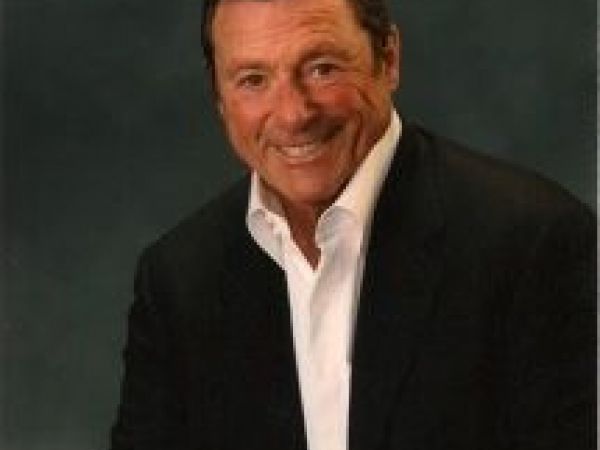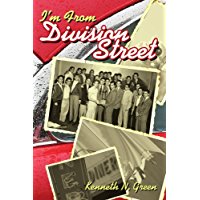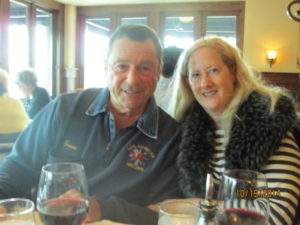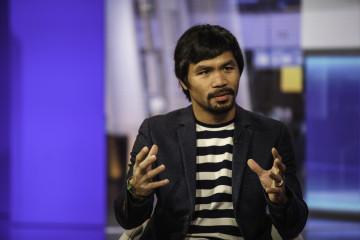MEN OF VALUE INTERVIEW : KEN GREEN by James Riordan

Ken Green’s story is inspiring because it demonstrates that no matter your age or circumstances, with God you can still achieve your dreams. He was a kid who was thrown out of high school with basically nothing to look forward to when he joined the army and was sent to Korea. Stuck in a foreign land with no opportunities on the horizon, most people would have despaired, but Ken Green began remaking his future, a future which saw him complete high school, get a college degree, become a teacher, become a lawyer, a public defender, the chief public defender of Los Angeles County supervising four hundred lawyers, a professor at UCLA, be admitted to the Box Hall of Fame and now an author.
 Ken’s book, I’m from Division Street, tells the story of a down, but not quite out Chicago kid who overcame the odds to become a huge success. “My father was the main person in my life.” Ken said. “He was an immigrant from Poland who managed to get out before Hitler arrived. He had no education and he spoke with a broken accent. When I came home from Korea he said to me, ‘What do you want to do with your life?’ I said, ‘I want to do what you do.’ He was a house painter. He said to me, ‘You could do better than that. You don’t want to have a life coming home with paint in your eyes and fumes in your lungs. Why don’t you be a lawyer?’ I said, ‘Dad I can’t be a lawyer. I was thrown out of high school and I’ve never read a book.’ He said, ‘But you’re very, very smart. You can do it.’ And then he had me paint closets in the projects for three days. On the third day I came home and my face was covered with paint. I said, ‘I’m going to be a lawyer.’”
Ken’s book, I’m from Division Street, tells the story of a down, but not quite out Chicago kid who overcame the odds to become a huge success. “My father was the main person in my life.” Ken said. “He was an immigrant from Poland who managed to get out before Hitler arrived. He had no education and he spoke with a broken accent. When I came home from Korea he said to me, ‘What do you want to do with your life?’ I said, ‘I want to do what you do.’ He was a house painter. He said to me, ‘You could do better than that. You don’t want to have a life coming home with paint in your eyes and fumes in your lungs. Why don’t you be a lawyer?’ I said, ‘Dad I can’t be a lawyer. I was thrown out of high school and I’ve never read a book.’ He said, ‘But you’re very, very smart. You can do it.’ And then he had me paint closets in the projects for three days. On the third day I came home and my face was covered with paint. I said, ‘I’m going to be a lawyer.’”
The family had no money and there were few educational loan opportunities in those days, especially for someone who’s been expelled from high school. “I said, ‘Dad it’s going to take me eleven years because I’ve got to get a job and work while I go to school.” He was a very smart man. He said, ‘Eleven years will come and eleven years will go, but if you do what I tell you and you become a lawyer, you’re going to walk into court and the judge is going to address you as counselor and your aunt and uncles who thought you would amount to nothing will be in the lobby waiting to see you and you’re going to tell them to see your secretary and make an appointment.’ So I got motivated. “
Green’s family left Chicago and relocated to Los Angeles in 1961. A year later he followed them to California. “I was living like a rat in Chicago, driving a cab and living in a very poor neighborhood. I had two jobs and I was going to Roosevelt University. After a year I went out to visit my family and I decided to stay because the weather was so beautiful. I finished my last year of undergraduate school at California State University and I became a high school teacher and went to law school in Los Angeles at night. After I graduated and passed the bar I joined the Los Angeles Public Defenders office and eventually worked my way up to chief.”
That alone is a near impossible feat. “I tried over a hundred jury trials. I don’t know how I did it,” Green admits. “I was only sleeping about three hours a night.”
 Green’s book, I’m From Division Street not only discusses his life but the many other memorable stories that came from the same neighborhood. “After my mother died, I was looking through her diaries, and all her memorabilia and the newspaper clippings she had saved and I discovered, much to my surprise, how many great Jews lived on that street. These were families who came from Eastern Europe with no money and no education and rose to tremendous promi-nence. People like Benny Goodman, the renowned bandleader, Pulitzer Prize-winning authors Studs Terkel and Saul Bellow, Jules Stein who established the Jules Stein Eye Clinic at UCLA. , Producers like Kyle Foreman and Mike Todd who
Green’s book, I’m From Division Street not only discusses his life but the many other memorable stories that came from the same neighborhood. “After my mother died, I was looking through her diaries, and all her memorabilia and the newspaper clippings she had saved and I discovered, much to my surprise, how many great Jews lived on that street. These were families who came from Eastern Europe with no money and no education and rose to tremendous promi-nence. People like Benny Goodman, the renowned bandleader, Pulitzer Prize-winning authors Studs Terkel and Saul Bellow, Jules Stein who established the Jules Stein Eye Clinic at UCLA. , Producers like Kyle Foreman and Mike Todd who
Ken and Maureen Green
was married actress Elizabeth Taylor. Just a huge plethora of people who achieved great success and they came from no money so I dedicated the book to them as well as my friends that I grew up with, most of whom, though they were all poor, are now multi-millionaires.”
Ken describes his values as old school. “I’m an old-school guy. I have never felt entitled. I never believed I was supposed to get things for nothing. I believe we live in a wonderful country where the opportunities are there, but you have to work hard.”
Green’s solid values are evident in everything he does, even where he takes his vacations. “This year my wife and I are planning on visiting Normandy and Iwo Jima. We want to pay our respects to the soldiers who fought and died there. I’ve had some friends who say, ‘Why don’t you go to Tahiti?’ And I say, ‘I’m not that kind of guy. It means the world to me to go to Nor-mandy and Iwo Jima. I respect men, in particular, men who are tough. They don’t whine, they work hard, they don’t lie and they don’t cheat. I’m old-school.”
As anyone who lives in today’s compromised world knows, it’s not always easy to live life by such values. “There were lots of times that compromising on my values would’ve made things easier, but I just think you have to make your stand in those situations. As a trial lawyer I never lied, I never cheated. I never encouraged any form of perjury. When I trained lawyers I told them, ‘You do everything you can for your client but you never lie and you never cheat.” I was a very good lawyer and, when I was a young public defender, a number of lawyers I knew who were in private practice said, ‘Why don’t you come out with me? You’ll make a lot of money.’ But I didn’t do it. I was not a money man. I wanted to enjoy my work. I didn’t want to die of a heart attack and I didn’t want to make those kinds of compromises.”
Green is also a longtime boxer and was inducted to the California Boxing Hall of Fame. “I was a single parent and when my son was little he told me he wants to learn how to box. So I found an old gym in Los Angeles. It was right out of Rocky. One day, when my son was eight years old, I took him there. We met the owner whose name was Frankie Goodman and he had been a national lightweight champion. He taught my son how to box. He cut a hole in the ring and got down in the hole so that he was their size and he taught kids as young as six how to box. Then I got hooked and I started going. I used to spar with FBI agents and little-by-little I started getting more involved with boxing. Finally this great man had a stroke and he closed the gym. I had a friend who was a movie actor who had a small part in The Godfather and he knew I was a boxer. One day he said to me, ‘Ken I’m friends with a movie star who owns a boxing gym and I told him about you and he said I could bring you by.’ That night I went and met Mickey Rourke. I didn’t know who he was. He owned the gym and he was very nice to me. He told me I could come as often as I wanted with no charge. So I used to go twice a week and box and I started meeting many people. I also became very good friends with his trainer who was the greatest trainer in the world. His name is Freddie Roach. He trained Mike Tyson, De Le Hoya, Manny Pacquiao – lot of the greats. Eventually Freddie bought the gym. I still go to his gym. I’m almost 80 years old. I still box. I’ve helped the California Boxing with their legal needs for years. I’ve helped a lot of great boxers when I could. They inducted to me to show their appreciation for everything I’ve done for boxing.”
Green recently had another very memorable experience through that organization. “At our last induction ceremony, which was in October in Los Angeles, I was selected to induct post-humously, one of the greatest Jewish boxers that ever lived, Barney Ross. I inducted him in front of hundreds of people and when I finished they gave me his certificate of inclusion into the Hall of Fame as well as a scroll from the City of Los Angeles. Since none of his relatives were able to be present my wife and I did some research and we found his family lived in Chicago. I have a condo there and when we came back to visit, I located them and went to their house and gave them the certificate. They showed me his photographs and newspaper clippings. It was a big honor for me because he was a great Jew. Not only was he a great boxer, but he was also a war hero.”
The idea for Green’s book, I’m From Division Street came about when he was talking to his wife about his life/ “I told her I think I’m going to write a book. Maybe I could motivate young kids. And the other reason I wanted to write the book is because I want to hand it down to my son and my grandchildren. So I went to Starbucks and I did it the old-fashioned way. I brought a legal pad and a pen and I gave myself a 3-month lid and I put in a couple hours a day and I wrote the book. I have a good memory and I just wrote down my memories.”
Ken Green defines freedom as follows: “Be your own person. Take advantage of all the opportunities that are available to you in this wonderful country. Choose what you want to do to make a living and pick something that makes you happy. I guess that’s freedom but with it comes the responsibility to do right.
Green recognizes the sharp divisions in America these days, but he trusts the system to work out the right path. “Obviously we have a split in the country. We have liberals, we have conservatives, but that’s the way that it’s always been. I think the best advice I can give people is to just be patient. We have a great country and the foundation is there in our constitution. That’s the way the forefathers set it up. Things will work out. And just be a good citizen. Work hard and teach your children good values.”
It’s this kind of attitude that made America great and it’s one of the reasons we are proud to call Ken Green a man of value.
__





No Comment